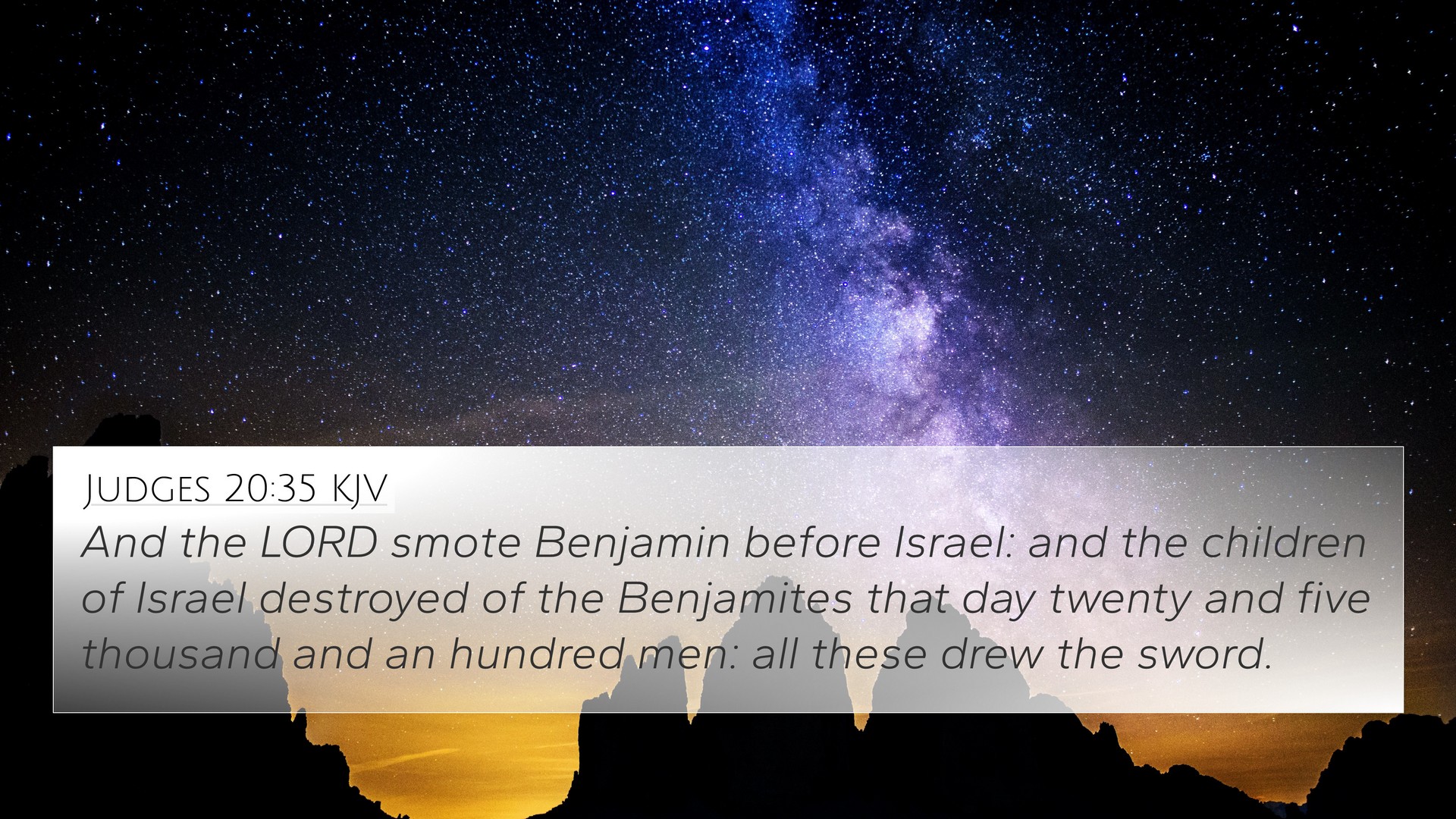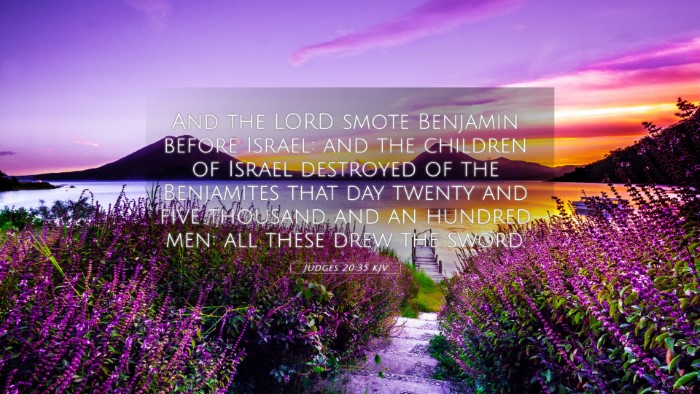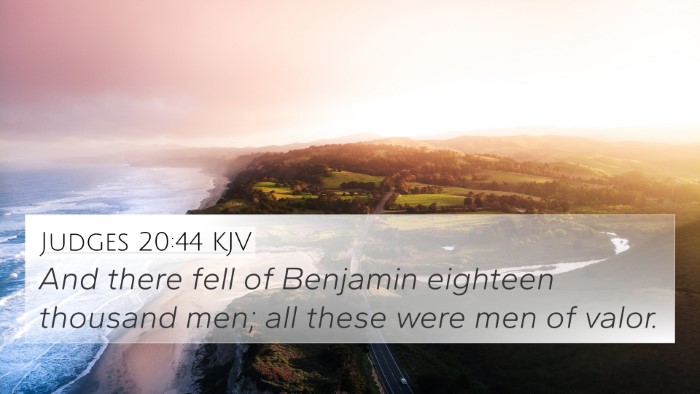Understanding Judges 20:35
The verse Judges 20:35 states: "And the LORD smote Benjamin before Israel: and the children of Israel destroyed of the Benjamites that day twenty and five thousand and an hundred men: all these drew the sword."
Contextual Background
This verse occurs within a narrative describing a civil war in Israel against the tribe of Benjamin due to their grievous sins. The conflict illustrates the severe consequences of sin and national disunity. The events depict a correlating theme of divine judgment against unrighteousness and the importance of moral integrity among God's people.
Insights from Public Domain Commentaries
-
Matthew Henry:
Henry indicates that the defeat signifies God's judgment on Benjamin's wickedness. He emphasizes that divine displeasure leads to dire consequences, highlighting a broader moral lesson about sin's repercussions and the need for national repentance.
-
Albert Barnes:
Barnes interprets this verse as a demonstration of God's sovereignty in Israel's affairs. He notes that the decimation of the Benjamites serves to reinforce Israel's collective responsibility and the importance of unity in the face of treachery and evil actions.
-
Adam Clarke:
Clarke provides a historical and critical view, noting the significance of the casualties specified. He highlights the implications of such a loss on the tribe and the nation, illustrating the gravity of their sins and the severe response from both God and their fellow Israelites.
Thematic Connections
This verse is significant as it links to several broader themes in Scripture, such as:
- Divine Judgment: The consequences of sin are prevalent throughout the Bible (e.g., Romans 6:23, Galatians 6:7).
- Unity among God's People: The emphasis on Israel's national identity echoes throughout the Old Testament (e.g., Psalm 133:1).
- Restoration and Redemption: Following judgment, the hope for restoration signifies God's mercy (e.g., Isaiah 1:18-19).
Cross-References to Consider
In examining Judges 20:35, various cross-references can provide deeper understanding:
- Deuteronomy 13:12-16: Judgments on towns that turn against God.
- 1 Samuel 15:33: God's judgment on unrepentant Amalekites.
- Psalm 94:23: God's retribution against wickedness.
- Romans 13:3-4: The authority of government as a servant of God for vengeance against wrongdoing.
- Galatians 6:7: The principle of sowing and reaping concerning one's actions.
- Proverbs 14:34: Righteousness exalts a nation, but sin is a reproach to any people.
- Micah 3:9-12: Warnings against injustice from leaders.
Conclusion
Judges 20:35 serves as a powerful reminder of the consequences of sin and the importance of unity within the community of believers. By linking this passage to broader biblical themes, one can appreciate the continuous call to righteousness throughout Scripture. As one engages in Bible verse cross-referencing, this verse exemplifies the intricate connections that enrich our understanding of God’s character and His expectations for His people.
Further Study Resources
For those interested in exploring more about cross-references in the Bible, consider utilizing:
- Bible Concordances: Tools for locating verses based on keywords.
- Bible Cross-Reference Guides: Resources that provide comprehensive connections between verses.
- Inter-Biblical Studies: Methods for analyzing themes across both Testaments.





